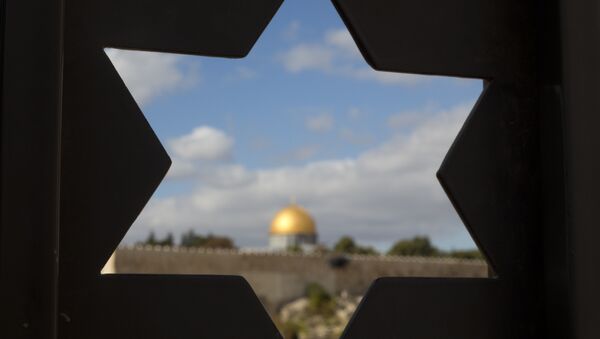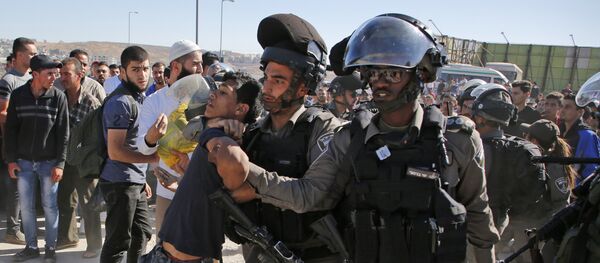Jerusalem's new mayor, Moshe Lion, is working on a proposal that would quiet the call to prayer broadcast by the city's mosques and give police the power to intervene if the religious message is deemed to be too loud.
According to Israel's Hadashot TV, local leaders in Palestinian and Arab East Jerusalem neighborhoods like Beit Safafa, Beit Hanina and Shuafat are involved in working out the proposal. "Our goal is to deal with this issue with all the relevant parties so that all those involved will be content," Lion said, according to the network's Tuesday report.
The noise reduction program calls for mosques' loudspeakers to be replaced by new devices that are limited to lower volumes, and would also allow police to alter the volume of loudspeakers found to be exceeding set limits. The budget reportedly set aside for hardware replacements is about $13,000 to $19,000. According to a 2016 report by Israel's UN mission, there are 73 mosques in Jerusalem.
This is not the first time Israeli officials have tried to hush the call to prayer — in early 2017, the Knesset gave preliminary approval to two versions of what was called the "muezzin bill." One version would have restricted the times of day the call to prayer could be sounded around the country, as well as reduced its volume; the other would have banned amplified calls to prayer entirely.
Ayman Odeh, head of the Arab political alliance Joint List, said at the time that the bill was "an offensive against the Arab public, against the presence of Arabs [in Israel], against the Arabic language and against our existence in the region. The sound of the muezzin predated the racists and will exist after the racists," according to the Times of Israel. Supporters of the bill say it is intended to safeguard the sleep of those who live near mosques.
Thousands in Israel protested the muezzin bill, and it has stalled in the Knesset since clearing its first hurdle.
The call to prayer is issued five times a day and can begin as early as 4 a.m.



